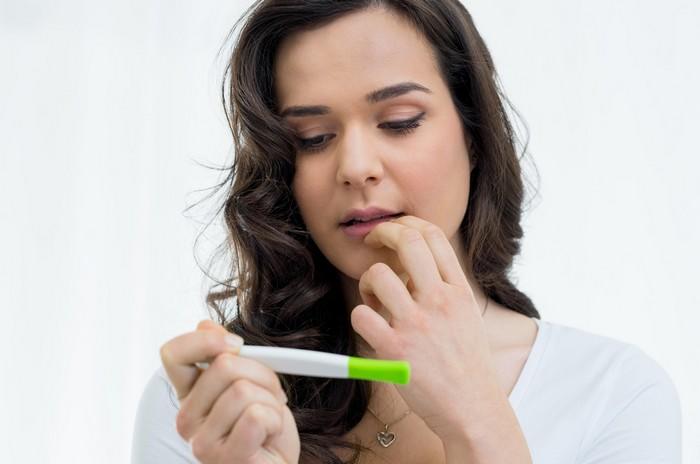Trying to get pregnant can be an exhilarating yet challenging journey. If you’re aiming to conceive quickly, particularly within a two-month timeframe, focusing on natural methods can make a significant difference. This article explores practical steps to enhance your chances of pregnancy naturally within this short period, emphasizing lifestyle adjustments, tracking ovulation, and optimizing overall health.
Setting the Stage for Natural Conception
Understanding Your Fertility
To conceive quickly, it’s crucial to have a good understanding of your fertility. Pregnancy occurs when sperm fertilizes an egg released from the ovary. For optimal chances of conception, it’s essential to focus on timing and overall reproductive health. Natural methods can effectively enhance your fertility and increase the likelihood of becoming pregnant within two months.
The Importance of Timing
The timing of intercourse in relation to ovulation is one of the most critical factors in conceiving. The fertile window is the period when you are most likely to get pregnant. It typically spans the five days leading up to ovulation and the day of ovulation itself. Understanding and optimizing this window is key to increasing your chances of conceiving naturally.
Tracking Your Menstrual Cycle
1. Understand Your Cycle
Your menstrual cycle plays a central role in determining your fertile days. The average cycle is about 28 days, but it can vary. By tracking your cycle, you can predict when ovulation is likely to occur.
How to Track Your Cycle:
- Cycle Length: Count the number of days from the first day of one period to the first day of the next. This will help you estimate the timing of ovulation.
- Menstrual Calendar: Use a calendar or a fertility app to record your cycle. This helps identify patterns and predict your most fertile days.
2. Identify Ovulation
Ovulation is when an egg is released from the ovary and is available for fertilization. This typically occurs around the middle of your cycle. Knowing when ovulation happens is crucial for timing intercourse.
Methods to Identify Ovulation:
- Cervical Mucus: Observe changes in cervical mucus. It becomes clear and stretchy around ovulation, similar to egg whites.
- Basal Body Temperature (BBT): Measure your BBT daily. A slight increase in temperature indicates that ovulation has occurred.
- Ovulation Prediction Kits (OPKs): These kits test your urine for a surge in luteinizing hormone (LH), which occurs just before ovulation.
Optimizing Your Fertility
1. Have Regular Intercourse
Regular intercourse during your fertile window maximizes your chances of conception. Aim for intercourse every 2 to 3 days throughout your cycle to ensure sperm is present when ovulation occurs.
Best Practices:
- Frequency: Engage in sexual activity regularly, especially during the fertile window.
- Timing: Avoid delaying intercourse to the exact day of ovulation, as sperm can survive in the reproductive tract for up to five days.
2. Maintain a Healthy Lifestyle
A healthy lifestyle supports optimal reproductive function. Making positive changes in diet, exercise, and overall well-being can enhance fertility.
Healthy Lifestyle Tips:
- Balanced Diet: Eat a diet rich in fruits, vegetables, lean proteins, and whole grains. Include foods high in folic acid and iron to support reproductive health.
- Regular Exercise: Aim for moderate exercise to maintain a healthy weight and overall health. Avoid excessive exercise, which can negatively impact fertility.
- Avoid Harmful Substances: Reduce or eliminate caffeine, alcohol, and smoking. These substances can adversely affect fertility.
3. Manage Stress
Stress can interfere with hormonal balance and reproductive function. Finding effective ways to manage stress can improve your chances of conception.
Stress Management Techniques:
- Relaxation Practices: Incorporate relaxation techniques such as meditation, yoga, or deep breathing exercises into your daily routine.
- Hobbies and Interests: Engage in activities you enjoy to help reduce stress levels.
4. Maintain a Healthy Weight
Both underweight and overweight conditions can affect fertility. Achieving and maintaining a healthy weight can improve your chances of conceiving.
Weight Management Tips:
- Healthy BMI: Aim for a body mass index (BMI) within the normal range.
- Balanced Approach: Combine a healthy diet with regular physical activity to manage weight effectively.
Creating a Conducive Environment for Conception
1. Use Lubricants Wisely
Certain lubricants can affect sperm motility and hinder conception. If you use a lubricant, choose one that is sperm-friendly or avoid using them altogether.
2. Stay Hydrated
Proper hydration is essential for overall health and reproductive function. Drinking enough water supports the body’s natural processes, including those related to fertility.
see also: Can Retained Placenta Cause Infertility?
Consulting Healthcare Professionals
1. Seek Professional Guidance
If you have been trying to conceive naturally for two months without success, it may be beneficial to consult a healthcare provider. They can assess any potential issues and provide personalized recommendations.
2. Consider Fertility Testing
If natural methods are not yielding results, your healthcare provider may suggest fertility testing. These tests can help identify underlying issues that may be affecting your ability to conceive.
Types of Tests:
- Hormone Evaluations: Assess hormone levels to identify imbalances.
- Semen Analysis: Evaluate sperm health and count.
- Imaging Studies: Check for structural issues in the reproductive organs.
3. Explore Additional Options
If necessary, your healthcare provider may discuss other fertility treatments or interventions. Options may include medications, hormone therapies, or assisted reproductive technologies.
Conclusion
Getting pregnant quickly and naturally within two months is achievable with a focused approach. By tracking your menstrual cycle, optimizing timing, and making healthy lifestyle choices, you can enhance your chances of conception.
Understanding your fertility, maintaining a healthy weight, and managing stress are key components of a successful natural conception strategy. Regular intercourse during your fertile window and a balanced lifestyle can significantly improve your odds of getting pregnant.
If challenges persist, seeking professional guidance can provide valuable insights and support. With the right approach and determination, many individuals and couples can successfully conceive and embark on the journey of parenthood.
Related topics:

























